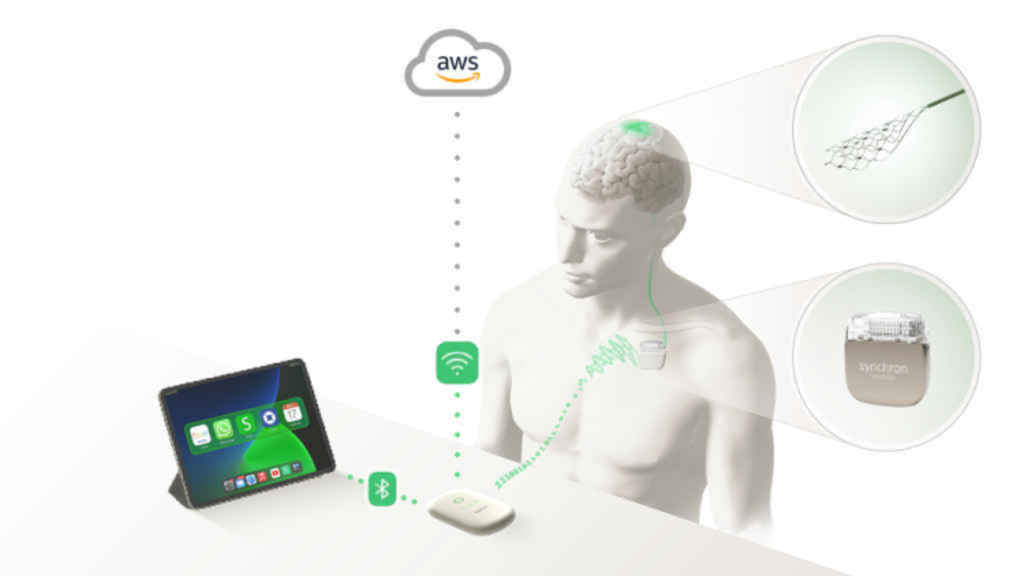A patient fitted with the Synchron brain computer interface (BCI) has successfully used Amazon’s Alexa for the first time.
The 64-year-old man, known as Mark, is a trial participant living with amyotrophic lateral sclerosis (ALS) and using Synchron’s BCI platform to control his smart home via the Tap to Alexa tablet feature.
Control with hands-free point-and-click
Pioneered by US-based neurotechnology company Synchron, the BCI is implanted in the blood vessel on the surface of the motor cortex of the brain via the jugular vein through a minimally-invasive endovascular procedure.
Once implanted it can wirelessly transmit motor intent out of the brain to restore functionality for those with severe paralysis.
The capability allows users like Mark to select customised tiles that perform pre-set Alexa actions entirely hands and voice-free, with the freedom to operate lights, make video calls, play media, read books on Kindle and purchase items on Amazon.
Mark said: “The integration with smart technology and my BCI is something I'm really excited about. It's hard to imagine living in our modern world without the ability to access or control connected devices like Amazon’s Alexa and Echo products that are so prevalent in my daily life.
“To be able to manage important aspects of my environment and control access to entertainment gives me back the independence that I’m losing."

Simple to use and easy to learn
The integration of Synchron’s BCI technology with Alexa-compatible devices could allow users to control their home environment both inside and outside, making daily routines more accessible.
Tom Oxley, CEO and founder of Synchron, said: “Synchron’s BCI is bridging the gap between neurotechnology and consumer tech, making it possible for people with paralysis to regain control of their environment.
“While many smart home systems rely on voice or touch, we are sending control signals directly from the brain, bypassing the need for these inputs.
“We’re thrilled to utilise our BCI to access Alexa capabilities, so patients can interact with devices in their home hands and voice-free using only their thoughts, to address a critical unmet need for millions of people with mobility and voice impairment.”